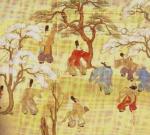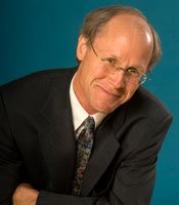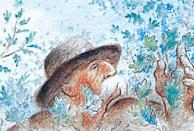Now that David Cameron is the new Prime Minister of Britain, it is worth taking a look at his views on civil society. Cameron campaigned on a Big Society agenda. He spoke about the need to restore the balance among civic sector (Big Society), public sector (the Big State) and private sector (Big Business). Some of his ideas include citizen engagement, community ownership, self-help and public services coops. In principle, Cameron wants to do revitalize volunteerism, democratic participation, local networks, social cooperation and citizen involvement. His policies reject top down, government defined definitions of the problem. He wants to change the role of government so it supports not supplants civil society. He talks about making the so called Third sector the First sector.
Social resilience: 5 types of action
We are persuaded that despite the modern trend to reduce community life to governance or market values, there remains in our society a solid and healthy core of vital and indestructible social values and virtues that are at the heart of community. They are also at the heart of what trust relationship there remains with respect to governments and business, and provide both with their sometimes fragile sense of legitimacy. We see them emerge vibrant and intact in times of crisis, when neighbours emerge from their social cocoons to engage, cooperate and assist each other. Looking at these universal values more closely can help us rethink community and citizenship in ways that will let the natural resilience of communities repair the living tissues of our communities.[...] Five types of social actions flow from this natural model for social action: Liberating actions, Inhibiting actions, Catalytic actions, Inspiring actions, Nurturing actions.
Haiti or the risk of not belonging

Supporting Life in the Urban Context: The Grounded Wisdom of Jane Jacobs
What are physical characteristics of hospitable neighbourhoods? The houses often have front porches where people can sit out and exchange a wave or greeting with their neighbours—rather than the protruding garages of suburbia that may give the much vaunted privacy developers advertise but isolate people from those who live next door. They have sidewalks, bike paths and good public transit so that people can move about in ways that allow meeting and mingling, rather than having to travel in the isolation of automobiles.
Japan revives kemari, a sport with no winners or losers

An open letter to Ted Kuntz, author of a Peace Begins with Me

Water is the ultimate commons
The Lonely World of Modern Architecture
Loneliness affects one in ten people in France
Preventing Home Foreclosures - a Promising Innovation in Philadelphia
Newsletter


 Al Etmanski is an author, advocate and social entrepreneur specializing in innovative solutions to social challenges. He is President and co-founder of Planned Lifetime Advocacy Network (PLAN), assisting families across Canada. PLAN Institute is co-editor of the Appartenance-Belonging website.
Al Etmanski is an author, advocate and social entrepreneur specializing in innovative solutions to social challenges. He is President and co-founder of Planned Lifetime Advocacy Network (PLAN), assisting families across Canada. PLAN Institute is co-editor of the Appartenance-Belonging website. Jacques Dufresne is chief-editor of Appartenance-Belonging. Long time columnist for La Presse and Le Devoir, he is editor of L'Encyclopédie de L'Agora online.
Jacques Dufresne is chief-editor of Appartenance-Belonging. Long time columnist for La Presse and Le Devoir, he is editor of L'Encyclopédie de L'Agora online. Beth Porter works for L’Arche Canada in the area of Educational Initiatives and Publications. She has a particular interest in the dynamics that make for a compassionate and inclusive Canadian society.
Beth Porter works for L’Arche Canada in the area of Educational Initiatives and Publications. She has a particular interest in the dynamics that make for a compassionate and inclusive Canadian society.